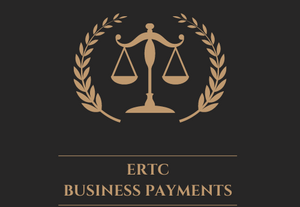What you need to know about small business employee retention tax credit,
The Coronavirus Aid, Relief, and Economic Security Act (also known as the CARES Act) was signed into law on March 27, 2020. It included two programs to assist businesses with keeping workers employed: the Payroll Protection Program (PPP) administered by the Small Business Administration and Employee Retention Tax Credit (ERTC) administered by the Internal Revenue Service.
PPP funds are distributed based on 2.5 months of payroll and a minimum of 80% of the funds must be used on payroll to be eligible for forgiveness. Additionally, PPP funds are not taxable as revenue and you may still take deductions for the payroll covered by PPP.
ERTC tax credits, however, are credits (or refunds) for a percentage of payroll in each quarter that you qualify. There are specific rules for determining eligibility by quarter and limiting the dollars that can be claimed for each employee, this could be up to £26000,00 per employee.
WHY ISN’T BANKERS, CPAs TALKING ABOUT THIS?
Bankers, CPAs, or Financial Advisors were probably very helpful when it came to getting your PPP funds because they were effectively signing companies to an SBA-guaranteed loan. The SBA paid the bank administrative fees based on the PPP loans they made, and so they were incentivized to educate businesses about the program and get all the relevant paperwork in order.
Compared to the ERTC, the PPP program was also a rather simple calculation. 2 ½ times the business’s average monthly payroll including health insurance and state unemployment taxes.
From the conversations, we’ve had with bankers, financial advisors, and many CPA firms these institutions are not interested because it is such a timely process, many institutions have no interest in involving themselves in business employment tax compliance. For these, it is a liability and beyond normal scope of services.
WILL A TAX CPA HANDLE THIS FOR A BUSINESS SINCE THEY HANDLE THE BUSINESSES INCOME TAX RETURNS?
Whether a tax accountant is a CPA or EA, he or she most likely only prepares company Federal and State Income Tax Returns. However, ERTC credits are claimed against Employment Taxes on Form 941, and cash advanced through Form 7200.
The complexity of the ERTC program is a beast unto itself and every tax accountant we’ve talked to has said they focus on staying up-to-date on the ever-evolving income tax code, and can’t now become experts in the ERTC program as well.
If the tax accountant is comfortable determining your eligibility by quarter and year, computing the company credits, and preparing contemporaneous documentation to support an IRS audit, then the business should certainly let them handle all of this.
If companies want a second set of eyes on this, there are CPAs who are now specializing in this specific field.
MY BOOKKEEPER HAS ALL MY INFO – CAN THEY HANDLE ERTC CLAIMS?
The company Bookkeeper should certainly have access to all the information that is needed for an accurate calculation of the business legal ERTC claim. company accounts will have a company’s financial reports, payroll registers, and PPP loan forgiveness documents.
The Million Dollar questions are . . . Do company accounts departments Have The Time and/or knowledge?
Bookkeepers may not have the time to dig into the text of the American Rescue Plan Act of 2021
And its accompanying referenced laws like CARES Act, Families First Act, Payroll & Healthcare Enhancement Act, PPP Payroll Flexibility Act, and the Consolidated Appropriations Act.
Time to read the IRS Interpretations and FAQ? And cross-reference those definitions with that of PPP which was separately defined and dissimilarly interpreted in the Small Business Administration’s Bulletins and IFRS?
Also, Bookkeepers may not have the time to ensure accuracy in eligibility determination, maximize your computation and create the supporting documentation needed to support an IRS audit of employer taxes? Remember, this could be 10’s, 100’s of thousands, or more for instance, Experience is showing that compies with as few as FIVE EMPLOYEE’S HAVE RECEIVED AMOUNTS UP TO 100k.
So far, it’s been found that a bookkeeper is not able to take all this on while handling the day-to-day bookkeeping. If the bookkeeper can, then take them up on their offer.
There are specific rules for determining eligibility by quarter and limiting the dollars that can be claimed for each employee, but it could be up to £26000,00 per employee.
